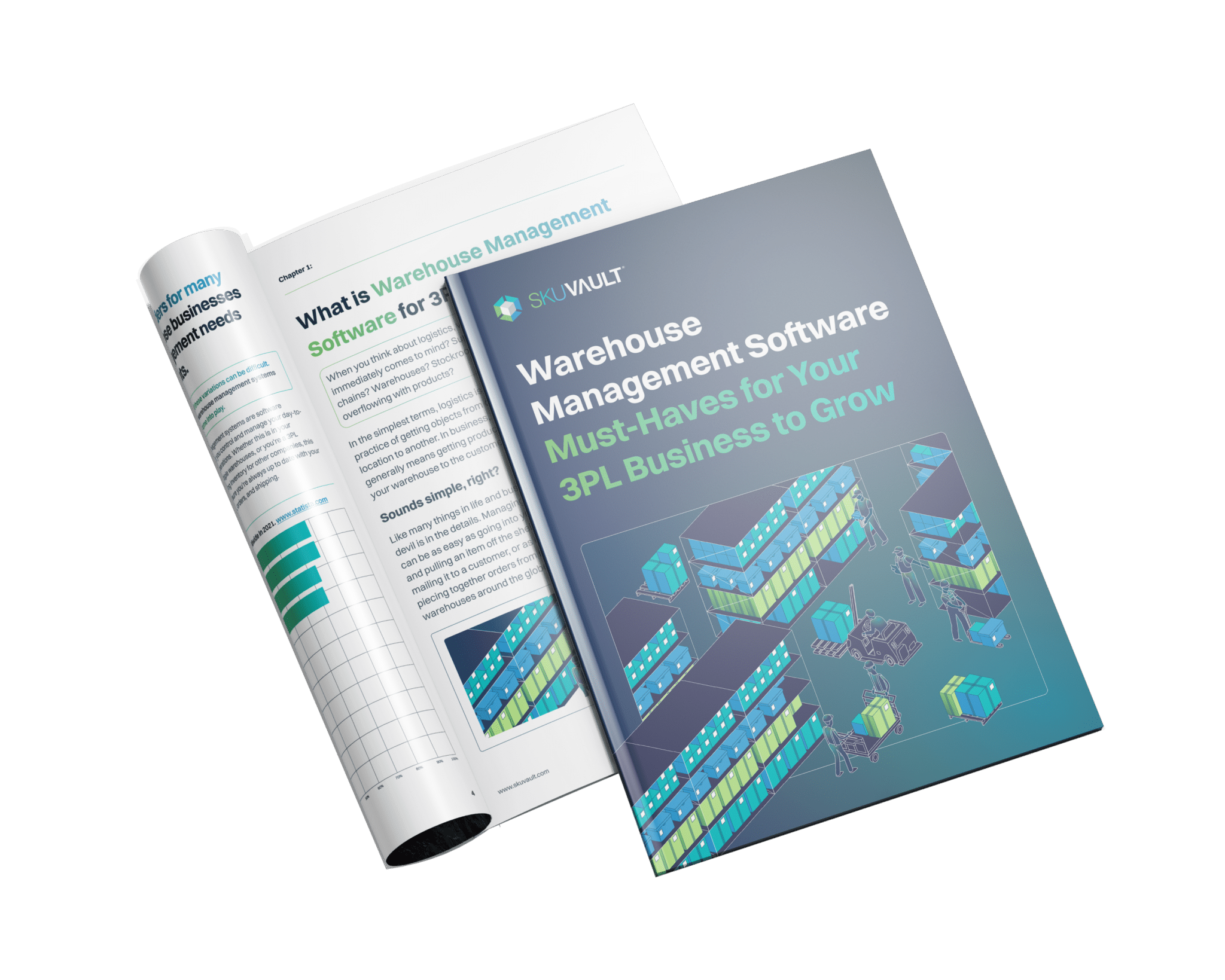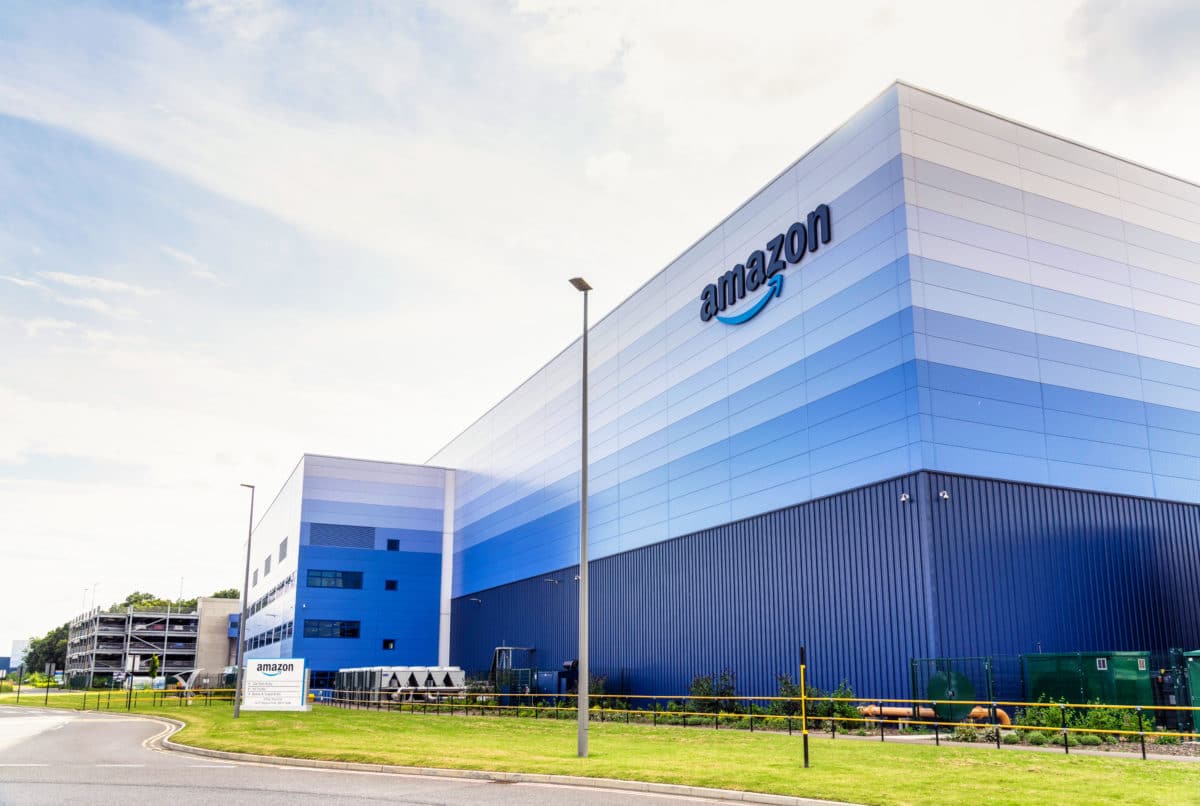
Once you’ve concluded that you need fulfillment services in your business, then comes the arduous task of choosing the right 3PL vendor to best accomplish your goals.
In this post, we’ll hold up Amazon FBA (Fulfillment by Amazon) — one of the most popular fulfillment providers — against other 3PL companies.
By the end of this post, you’ll have a much clearer path forward on how to outsource your logistics and supply chain.
Why Your Business Needs Order Fulfillment Services
While it’s not easy to hand off your business operations to anyone, the benefits of utilizing outsourced order fulfillment are many.
A good fulfillment partner will assuage your fears and make the hand-off process easy. Here are just a few of the benefits of partnering with a fulfillment service.
Fulfillment services help your business grow
The number one enemy of scale is a lack of systems, processes, and a team. Many eCommerce startup owners are solopreneurs or part of small teams.
Until we figure out a way to clone ourselves or slow down time, you cannot grow if you’re doing everything yourself. There’s only one of you and only 24 hours in a day.
If there’s one thing we’ve learned from growth-minded eCommerce businesses, it’s that trying to be a jack of all trades and do everything yourself will sabotage your growth.
Scaling a business can only happen when you stop trading your time for dollars and start working on your business inside of in your business.
It requires time for vision-casting, strategy development, and other high-level tasks. Freeing up your time requires delegation, processes, and a team.
The best things to delegate are repeatable, predictable tasks. And inventory management falls squarely in that category.
Outsourcing to a 3PL can help you focus on things that will actually facilitate growth in your organization.
Fulfillment services help you manage growing SKU counts
Freight rates. Returns processing. Par levels and reorder points. All this is a lot to keep in your head. And most of us weren’t trained in warehousing best practices.
While we firmly believe that anyone with the right tools can handle inventory management system, you may not want that responsibility — especially when precious customer experiences are at stake.
When you hire a fulfillment service provider, you’re hiring people who’ve dedicated their lives to perfecting the craft of supply chain management.
When something goes wrong transporting a product, they scramble to fix it so you don’t have to. And if a product is damaged or a shipping deadline isn’t met, most providers will compensate you accordingly.
For folks who don’t have the bandwidth to manage in-house inventory, there’s no shame in leaning on subject matter experts.
Fulfillment services help you navigate fluctuation in order volume
Many eCommerce businesses rely on smaller audiences, uncertain market forces, and seasonal demand to keep their business afloat. Couple that with the fact that many new companies don’t have the benefit of historical sales data.
So how does a fulfillment service help with this?
Many fulfillment service providers are “elastic” in their logistics strategies. Meaning, whether you have slow months or sudden spikes in your traffic, 3PL companies are equipped to handle it.
Businesses that outsource their logistics no longer need to fear seasonal demand. 3PLs help prevent stock-outs while maintaining a steller delivery experience for your customers.
Fulfillment services offer robust shipping options
Many fulfillment services have exclusive deals with shipping providers and include transportation brokerage options in their services. After all, it’s mutually beneficial for them to secure the most cost-effective and expedient shipping method for their clients.
Further, depending on their infrastructure, many fulfillment providers can offer competitive shipping timelines that would be cost-prohibitive from an in-house operation.
What Businesses Benefit From Using Third-party Fulfillment Services?
If you’re unsure about making the leap to outsourcing your logistics, let’s look at some practical criteria.
We’ve compiled six questions to determine when it’s time to make the leap to an outsourced inventory strategy. Consider these in the context of your business:
- Are you spending at least 30-50% of your working hours handling orders and logistics-related tasks?
- Do you process 100-300 orders per month?
- Have you hired (or are you planning on hiring) warehouse employees?
- Are you reaching the capacity of your warehouse space?
- Do you sell a product that doesn’t require customization, complex kitting, or expert assembly?
- Do you find yourself unable to penetrate certain markets due to shipping costs and complications?
If you answered yes to the majority of these questions, you’d likely benefit from fulfillment services.

Your 3PL deserves better inventory transparency
Download this guide to learn the features you actually need to build happy customers
What businesses do not benefit from fulfillment services?
While 3PLs can service most eCommerce businesses, some organizations won’t be a good fit. If any of the following sounds like your business, you should probably look into other in-house options before investing in a 3PL:
- You have proprietary formulas that require in-house equipment to produce and package
- You ship very large items that would be cost-prohibitive to store in a third-party warehouse
- You’re a brand-new eCommerce business without capital or demand forecasts to inform your fulfillment strategy
- You don’t have an established customer base that can deliver reliable revenue
- You have items prohibited by the terms and conditions of most 3PL providers
- Your products are so small that outsourcing storage and logistics wouldn’t add significant value
What is Amazon 3PL?
Amazon’s proprietary 3PL service is called Amazon FBA (Fulfillment by Amazon).
Amazon FBA allows customers to store their products in Amazon’s fulfillment centers. Amazon’s fulfillment team will also pick, pack, ship, and provide customer service for these products.
In addition to that, FBA customers have a higher chance of visibility on Amazon’s dominant eCommerce catalog.
They’re also beneficiaries of the two-day shipping Amazon is so well-known for, thanks to Amazon’s sprawling and comprehensive fulfillment infrastructure.
How is Amazon Fulfillment Different From Other 3PL Companies?
Amazon is a brand that truly needs no introduction.
Its U.S. product sales are expected to exceed $367 billion in 2021. They also have one of the most expansive infrastructures in the business, with over 200 fulfillment centers across the continental U.S.
FBA offers the same services as other fulfillment providers – storage, picking, packing and shipping, and customer service.
However, they have the added benefits of displaying the Prime logo and providing free, two-day shipping on “eligible orders.”
However, other 3PL competitors aren’t oblivious to this fact. To compete with the eCommerce behemoth, they offer certain benefits that larger organizations like Amazon can’t.
So before jumping on the Amazon FBA bandwagon, let’s take a look at some of the benefits of Amazon fulfillment vs. other 3PL companies.
Benefits of Amazon Fulfillment
- Prime perks – Amazon Prime has become the standard for online shipping. It’s rare that you’ll find an Amazon shopper that doesn’t have a Prime subscription. All FBA customers have full access to Prime benefits like two-day shipping and a higher likelihood of being featured in Amazon’s Buy Box.
- Customer support and reverse logistics – Amazon FBA will handle all returns, refunds, and reverse logistics associated with the products they fulfill. This is a huge time-saver for businesses and may alone be worth the price of admission.
- Straightforward fee structure – Amazon’s fees, while a bit complex, is at the least very transparent. Amazon even offers a revenue calculator so customers can see exactly how much profit they’re expected to generate and if it’ll result in a positive ROI for their business.
- Integration with Inventory Management Software – Amazon FBA offers seamless integration with Inventory Management Software (IMS) like SkuVault. Consolidating all your channels into an IMS means you can monitor both your FBA-fulfilled products as well as all your other sales channels in one convenient location.
- Cross-channel fulfillment – Amazon FBA allows customers to fulfill products across multiple eCommerce channels. Meaning, you can satisfy orders from other sales channels using your FBA inventory.
- Low startup cost – Amazon FBA is attractive because of its streamlined onboarding process and minimal fees. While the higher Seller tiers cost a monthly fee, many new sellers can get away with the free plan and pay the fulfillment fees on the back end. Be sure to familiarize yourself with Amazon’s new 2022 fee structure.
- Brand recognition – There’s always that extra layer of trust that eCommerce sites have to earn before users purchase on their platform. Amazon has well-earned that trust. Users don’t think twice about purchasing on Amazon, and FBA customers get to piggyback off of that reputation.
Benefits of Using Other 3PL companies
- Warehousing and Fulfillment Centers – 3PL companies vary in their warehousing and storage offerings. Fulfillment centers located in certain parts of the Country (or world) may be better suited to your business. You may not need sprawling infrastructure, but a more affordable fulfillment center solution.
- More personalized attention – Amazon is a behemoth, which comes with its benefits and downsides. One of the downsides is that you’re probably not going to get as much personal attention with Amazon FBA as you would with other 3PL providers. Many 3PL companies offer dedicated support reps and account managers that are available at a moments’ notice. These folks can help you with your fulfillment strategy, sales growth, and support issues.
- Warehouse and order fulfillment expertise – Another benefit of the individualized attention in most 3PL companies is the expertise you get with the team. Compared to Amazon FBA, the teams will usually be smaller, more intimate, and more accessible. For this reason, you can have a deeper understanding of the specific ways your products are fulfilled and perhaps negotiate bespoke fulfillment strategies.
- Dedicated support during holidays and seasonality – Dedicated account managers come with the added benefit of support during crazy seasonal surges. Large fulfillment providers might leave you on your own, while smaller vendors may offer specific ways to help you during the holiday season.
- Customization and kitting – Some 3PL providers offer boxing, customization, and kitting options for your products. This is important if you’re an eCommerce business that often bundles your products, has frequent sales or promotions, or wants to have total control over the customer experience.
- B2B capabilities – If fulfilling in bulk or in a B2B context is important to you, then you’ll want to explore 3PL options outside of Amazon FBA. Many smaller fulfillment companies can support both B2B and B2C sales, whereas Amazon FBA is limited to only B2C.
Which is Right for My Business?
Many companies have gone the way of the “gig economy” — outsourcing as much of their daily operations as possible while keeping a lean in-house team.
Trying to do everything in-house is expensive. Just do a little bit of research on how much it costs to set up, operate, and staff a warehouse or distribution center. It’s enough to make your head spin.
But starting a relationship with a fulfillment provider is like starting a relationship with a business partner. It’s a massive commitment and a decision that deserves careful thought.
After all, you’re trusting them with your livelihood, and that’s no small thing.
In our next post, we’ll talk through the specific pros and cons of Amazon FBA and other 3PL providers so you can have a clear idea of what’s right for your business.

